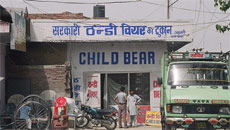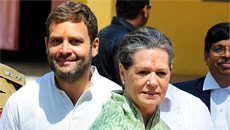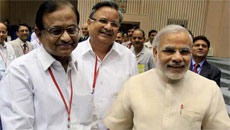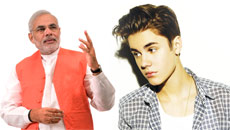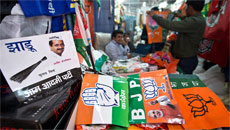A colleague recently visited Lahore to cover a fashion show. She enjoyed her sojourn but experienced a poignant episode when returning which she immortalised on Facebook. "An incident that made me feel bad about the existence of a border between India and Pakistan...There was a 60-year-old man who touched Indian soil and started crying the moment he crossed the border today. Reason - he was not given a visa for the past 28 years to meet his son in Kolkata and today he got that... Are government policies more important than human emotions?"
Good fences make for good neighbours, holds the cliche. But what if they become impenetrable barriers that deter all but a determined or compelled few from crossing over, while preventing both sides from viewing each other as they really are - as in the case of India and Pakistan?
What makes it all the more sad is that both the countries have at least a millennium of shared history and culture, understand each other's common language and enjoy the same pursuits - especially cricket and song and dance-filled films. Moreover, both peoples are indefatigable travellers all over the globe - except to each other's countries.
Perceptions aside, the two regimes don't make it easier - with cumbersome visa policies and numerous restrictions for each other's citizens - especially the three-city cap and the daily police reporting. Is it then difficult to understand why the two countries figure in many colourful travelogues, but there is almost no book detailing an Indian's impressions of going around Pakistan, or vice versa? That is if you don't consider the handful of people - mainly influential cultural and literary personalities - to have had the opportunity to revisit their old surroundings, abandoned in the madness of 1947, and writing about the experience.
Two people - one Pakistani and one Indian... well, almost an Indian - have, however, broken the paradigm. As happens in most travelogues, their works have not just impressions of their travel but encompass incisive observations on history, religion, culture, food - and ultimately, identity.

"From Amritsar to Lahore: Crossing the Border between India and Pakistan" by Stephen Alter is a trail-blazer in this sparsely-populated genre. Alter, a cousin of actor Tom Alter, is strictly and technically not Indian but American, though born and brought up in India and a permanent resident of the country. But it is indisputable that his long sojourn in India - especially in the hills around Mussoorie - has instilled an Indian ethos in him and besides, his wife is Indian and from a family which was among those displaced from home and hearth in 1947.
Even for him, it was not easy. Long interested, Alter says he was unable to visit Pakistan "because it would have jeopardized my status as a permanent foreign resident of India". But when he got the chance in the mild thaw of 1997, he made most of it.
His journey begins in New Delhi with a moving account of the entreating crowds outside the visa gate of the domed Pakistan High Commission, takes a detour to Mussoorie, before travelling on to Amritsar and Wagah - a most tragicomic experience - from where he catches the train to Lahore. He then travels on to Peshawar and the Khyber Pass, returns to Rawalpindi and Islamabad, visits the picturesque Murree hill station and then returns to India through Atari and back to Delhi to the 50th celebrations of Indian Independence.
His account is slightly dated. Alter's journey took place in 1997 and though he had updated his account with an afterword on the Kargil episode when the book came out in 2000, a lot - 9/11, 26/11 - that further affected bilateral relations was ahead. Nevertheless, the book is a charming and enthralling read and treasure-house of nuanced observations and impressions.
Following his steps in the opposite direction is development professional-cum-columnist Raza Rumi with "Delhi by Heart: Impressions of a Pakistani Traveller" (2013), based on his visits to the city in 2007-09.
Though well-connected due to his interactions with Indian officials during his stint in the UN mission in Kosovo and then in the Asian Development Bank, even he was unable to visit any place apart from the capital but does it full justice.
Rumi emerges as a comprehensive chronicler of all aspects of Delhi - digging facts even lifetime residents would have had difficulty knowing - well, the observer sees more of the game!

Besides meetings with a host of prominent people including Khushwant Singh, Sadia Dehlvi, Qurratulain Haider and Mushir-ul Hasan, he travels all over the city - from the dargahs of Hazrat Nizamuddin Auliya and Bakhtiyar Kaki to the Jama Majid and its surroundings and even the leafy environs of JNU - to present a most compelling portrayal of Delhi - made more fascinating by the nature of the observer.
Though both the books stress the fact that the border is here to stay, the underlying motif is that it should not serve as a barrier to people-to-people contact - only achievable through more visitors to either countries. May this soon become a reality!
Golden Temple Image By Stuart Edwards
